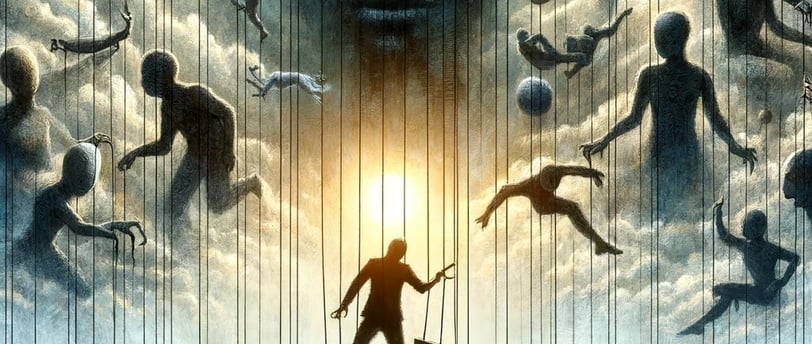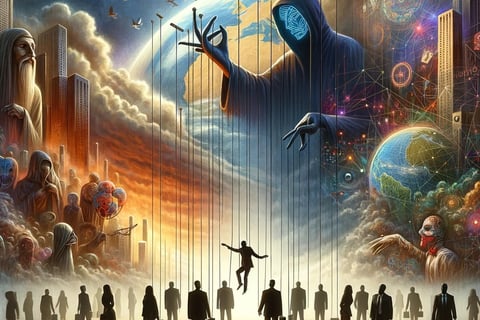Unmasking the Global Puppeteer
The United Nations' Grip on the World
NEWS


The quest to identify who truly controls the world often leads to a myriad of powerful entities like JP Morgan, BlackRock, Microsoft, and the World Economic Forum. However, a deeper dive reveals a more dominant force, overshadowing these giants – the United Nations (UN). This exploration uncovers the UN's intricate web of influence and its undeniable grip on global affairs.
The Omnipresent Influence of the United Nations
Despite varying perspectives on global power dynamics, the United Nations emerges as the central coordinator of the world's most influential institutions. Its reach extends across mega banks, investment funds, Big Pharma, tech giants, and even the World Economic Forum. The UN's agenda permeates various sectors, influencing global policies on digital identity, smart cities, and more.
The Genesis and Evolution of the UN
The chaotic global landscape preceding the UN's formation was marked by constant wars and turmoil. Efforts to establish peace led to the creation of the first international organization in 1815, which eventually evolved into the UN after World War II. With 193 member countries, the UN initially focused on peacekeeping but gradually expanded its objectives to encompass human rights, economic stability, and global cooperation.
The UN's Agenda and Its Implementation
The UN's expansive agenda, including the Sustainable Development Goals (SDG), mandates member countries to achieve specific targets by 2030. This drive towards a unified global strategy involves promoting digital currencies, smart cities, and other advanced technologies. The UN's influence is so pervasive that even entities like the World Economic Forum align their objectives with the UN's directives.
The Digital Army and Control Over Information
A striking aspect of the UN's power is its ability to control narratives and combat what it deems as misinformation. The organization's digital army, poised to tackle opposing viewpoints, underscores the UN's role in shaping global consensus and steering public opinion towards its goals.
The Structure and Decision-Making in the UN
The UN comprises six main organs, including the General Assembly and the Security Council, functioning like a global government. The power dynamics within these organs, particularly the veto power held by the five permanent Security Council members (the victors of World War II), highlight the significant influence wielded by select nations in global decision-making.
The Role of the Secretary-General and Allied Organizations
The Secretary-General plays a pivotal role in executing the UN's agenda. Current Secretary-General Antonio Gutierrez, closely associated with the World Economic Forum, exemplifies the symbiotic relationship between the UN and other powerful groups. The IMF and the World Bank, integral parts of the UN system, further amplify its influence in shaping global financial policies.
The Young Global Leaders and Future Influences
Klaus Schwab's Young Global Leaders, an organization aimed at grooming future leaders, represents the strategic planning of powerful non-elected entities to shape global governance. This initiative extends to local levels, influencing potential leaders like mayors, further entrenching the UN's influence in various spheres.
The Impact on Developing Nations and Global Poverty
The UN's influence in developing countries, often through conditional loans from the IMF and the World Bank, has led to centralized systems in developed nations and corrupt leadership in developing ones. This dynamic has contributed to persistent poverty and hindered the genuine development of many countries over the past decades.
The exploration of the United Nations' pervasive control reveals a complex network that influences almost every aspect of global governance. From setting agendas to shaping economic policies, the UN stands as the ultimate puppeteer, orchestrating the world's direction. Understanding this intricate web of influence is crucial for anyone seeking to grasp the true dynamics of global power and control.



